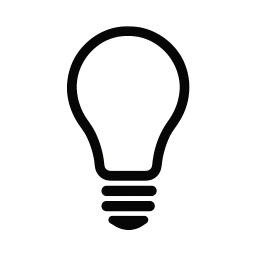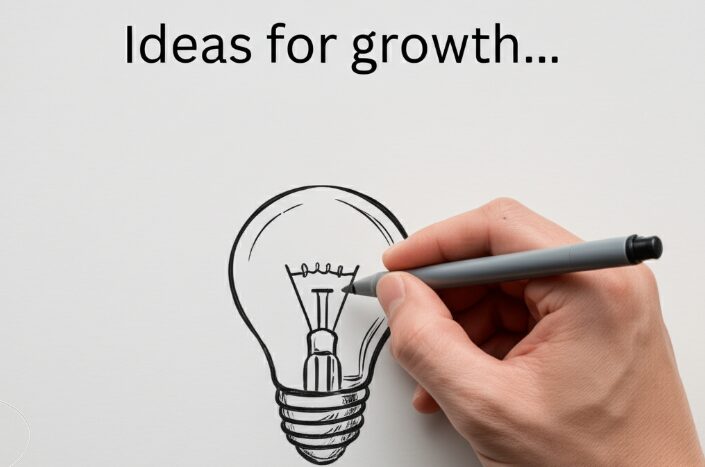My name is Jon, and I have millennial fatigue.
I remember the exact moment I realized the American Dream had died for me. It was early on a Tuesday morning, and I was refreshing my email for the hundredth time that week, hoping for a callback from yet another job interview. Bachelor’s degree from a decent university? Check. Programming bootcamp certificate hanging on my wall? Check. Three years of management experience that supposedly made me “leadership material”? Triple check.
Bank account balance hovering dangerously close to zero? Also check.
Born in 1986, I’m part of the millennial cohort that entered adulthood during the Great Recession, and I’ve spent the better part of two decades watching the promises our parents made us crumble like stale bread. We were told that education was the great equalizer, that hard work would pay off, that if we just followed the rules and checked all the right boxes, we’d be rewarded with stability and prosperity.
Instead, we got a participation trophy in economic anxiety and a masterclass in systemic failure.
This isn’t just my story—it’s the story of an entire generation. Millennials, despite being the most educated generation in history, face unprecedented economic barriers that have created a collective sense of fatigue so profound it’s reshaping how we think about work, life, and the future itself. We’re tired. We’re broke. And increasingly, we’re losing hope that things will ever get better.
The Millennial Fatigue: When Education Becomes Punishment
The Diploma Delusion
The numbers should make us proud. According to Pew Research, 39% of millennials aged 25-37 have a bachelor’s degree or higher, compared to just 29% of Gen Xers at the same age. We’re the most credentialed workforce in American history. We followed the script perfectly: graduated high school, went to college, maybe even got advanced degrees or additional certifications.
I did everything right. Earned my bachelor’s degree, attended a free programming bootcamp full-time while working weekends when tech was supposed to be the golden ticket out of economic uncertainty, climbed into management roles that looked impressive on LinkedIn. And yet, here I am, scrolling through job boards at midnight, wondering if I’ll ever earn enough to afford both rent and groceries in the same month.
The cruel irony? Nearly half of us—48% of millennials with bachelor’s degrees—are working in jobs for which we’re overqualified. That barista with a degree in communications? That retail worker with a master’s in sociology? That’s not laziness or entitlement. That’s a broken system that promised us mobility in exchange for debt and delivered neither.
Drowning in the Poverty Trap
While our parents worry about our avocado toast habits, we’re dealing with poverty rates that would have horrified previous generations. In 2013, 22% of high school-educated millennials were living in poverty—a rate that has only gotten worse as housing costs skyrocketed and wages remained stagnant.
But here’s what really stings: even those of us who did everything “right” aren’t safe. I have management experience, technical skills, and a college degree, yet I’ve spent years cycling between jobs that barely cover basic expenses and periods of unemployment that drain whatever meager savings I’ve managed to accumulate.
The average millennial graduate carries $27,000 in student debt—a number that feels almost quaint compared to the six-figure burdens many of my peers shoulder. That monthly payment isn’t just money leaving our accounts; it’s a constant reminder that we paid for the privilege of being systematically underemployed.
The Great Recession’s Forever Wounds
Those of us born around 1986 have a particular kind of economic trauma. We came of age during the worst economic crisis since the Great Depression, entering a job market that had been torched by financial speculation and corporate greed. While older generations had decades to build wealth before the crash, we started our careers in the ashes.
The statistics are brutal: millennials born in the late 1980s have only 44% of the higher-status jobs that our parents held at age 30. We’re not failing to launch—we’re being systematically prevented from taking off.
The Broken Promise of Work
The Gig Economy Gaslighting
Remember when having a job meant having security? When you could count on steady paychecks, health insurance, and maybe even a pension? Those days feel like mythology now. We’ve been sold the gig economy as “flexibility” and “entrepreneurship,” but what it really means is that all the risk has been transferred from employers to us.
I’ve watched friends celebrate landing contract work that pays well per hour, only to spend weeks between gigs with no income and no benefits. The instability is exhausting. According to Gallup, 21% of millennials changed jobs within a year, costing the economy $30.5 billion annually. But here’s what those numbers don’t capture: we’re not job-hopping by choice. We’re desperately searching for something—anything—that pays a living wage and doesn’t treat us like disposable resources.
The Programming Bootcamp Mirage
When I enrolled in a free programming bootcamp full-time while working 20 hours on weekends, I genuinely believed I was making a smart investment in my future. Tech was booming, companies were supposedly desperate for developers, and the bootcamp promised “employment partners” that sounded like guaranteed job placement assistance and starting salaries that would finally lift me out of financial precarity.
The reality was different. The market was already saturated with junior developers. The “junior” positions required three years of experience. The “entry-level” jobs wanted senior-level skills. And those “employment partners” turned out to be nothing more than a list of companies that might hire bootcamp graduates—no actual placement assistance, no interviews arranged, just empty promises dressed up in corporate speak.
I wasn’t alone in this experience. Across the country, millennials were attending free coding bootcamps full-time while juggling part-time work, taking digital marketing certificates, pursuing project management courses—anything that promised to be our ticket out. But the ticket booth was empty, and the train had already left the station.
The Emotional Toll and Millennial Fatigue of False Promises
There’s a particular kind of exhaustion that comes from repeatedly being told that your struggles are your own fault. That if you just worked harder, networked better, or developed more skills, everything would fall into place. It’s the millennial fatigue of being gaslit by an entire economic system.
Deloitte’s 2025 survey found that 46% of millennials feel financially insecure, and that insecurity seeps into every aspect of our lives. It affects our mental health, our relationships, our ability to plan for the future. When you’re constantly worried about making rent, it’s hard to feel like your work has meaning or that you’re building toward something better. This constant stress is at the heart of millennial fatigue.
Millennial Fatigue: A Generation’s Shared Despair
The Universality of Struggle
The most isolating thing about financial struggle is how personal it feels. But my story isn’t unique—it’s epidemic. Scroll through any millennial-focused social media group, and you’ll find hundreds of posts that echo the same themes: overqualification, underemployment, the constant hustle just to survive.
The Stanford Center on Poverty and Inequality documented rising poverty and mortality rates among millennials, particularly those without college degrees. But even those of us with degrees aren’t insulated from financial vulnerability. We’re the generation that was told education was the path to prosperity, only to discover that the path leads to a cliff.
On Twitter, the stories multiply: “37, master’s degree, three jobs, still can’t afford a one-bedroom apartment.” “Been applying for six months, 200+ applications, maybe 10 interviews, zero offers.” “Finally got a ‘good’ job that pays less than my dad made in 1995, adjusted for inflation.”
These aren’t isolated failures—they’re symptoms of a system that has fundamentally broken down.
The Milestone Mirage
Our parents’ generation used homeownership rates as a measure of economic health and stability. In 1980, 52% of Americans aged 25-34 owned homes. By 2010, that number had dropped to 42% for the same age group. For many of us, homeownership isn’t just delayed—it’s become a fantasy.
Even my brother, who actually broke through and landed a well-paying programming job, can’t afford to buy a house here in Florida. With the statewide median sale price for single-family homes at $412,734 as of April 2025, and mortgage rates lingering around 7% combined with rising home insurance costs, even good tech salaries aren’t enough. When someone with programming skills—the supposed golden ticket—can’t afford basic homeownership, you know the system is completely broken.
The same goes for starting families, taking vacations, or building any kind of financial security. We’re not choosing to delay these milestones; we literally cannot afford them. And every year that passes makes them feel more impossible.
I’m approaching 40 with a wife and two children, and I still feel like I’m waiting for my “real” adult life to begin. Waiting to earn enough to actually save money instead of just surviving paycheck to paycheck. Waiting to find a job that doesn’t leave me exhausted and broke while trying to provide for my family. Waiting for the system to work the way we were promised it would.
When Hard Work Stops Mattering
The most soul-crushing realization is that effort doesn’t correlate with outcomes anymore. You can do everything right—get educated, develop skills, work multiple jobs, network relentlessly—and still find yourself sliding backward financially.
This breaks something fundamental in the American psyche. We were raised on the mythology of meritocracy, the belief that hard work and determination would be rewarded. When that belief collapses, it takes hope with it.
Breaking Through Millennial Fatigue: Searching for Light in an Endless Tunnel
Individual Solutions to Systemic Problems
We keep trying, of course. We upskill and reskill and side-hustle ourselves into exhaustion. We network and optimize our LinkedIn profiles and apply to jobs that require a bachelor’s degree to answer phones. We meal prep and budget and cut every possible expense, trying to squeeze prosperity out of poverty through sheer force of will.
Some policy experts suggest raising the minimum wage or expanding job training programs. These might help at the margins, but they feel like Band-Aids on a severed artery. The problem isn’t that we lack skills or motivation—it’s that the entire economic structure has shifted to benefit capital at the expense of labor.
The Changes We Actually Need
Don’t mistake my frustration for anti-capitalism sentiment. I believe in capitalism—it’s a system that has helped countless people escape poverty and build better lives. I see economic conservatism as the smartest way to run a country. But what we have now isn’t capitalism or conservatism—it’s economic oligarchy. We have carpetbagging politicians on both sides of the aisle stuffing their wallets and their friends’ wallets, redistributing wealth upward like some kind of evil Robin Hood.
Real solutions require getting back to actual economic principles. We need to implement policies that provide genuine economic opportunity for individuals. This includes addressing issues like student debt, strengthening labor protections to give workers more bargaining power, and creating housing policies that ensure shelter is affordable and accessible rather than a speculative asset. Additionally, we need to reform tax structures to reward productive work and innovation, not just passive wealth accumulation.
This isn’t about abandoning the principles of free markets—it’s about restoring them. A healthy market economy is built on fair competition, not on a system where a small group can manipulate entire sectors. When regulations and policies create an environment that favors a few at the expense of many, it undermines the very foundations of a competitive and thriving market. This is about fostering a system where everyone has a fair chance to succeed.
The Stubborn Persistence of Hope
Here’s what’s remarkable about our generation: despite everything, many of us haven’t given up entirely. Even through the worst of millennial fatigue, Deloitte found that 67% of millennials with positive mental well-being still find their work meaningful. We keep applying for jobs, starting small businesses, organizing for change, believing that maybe, somehow, things can get better.
I still update my resume. I still check job boards. I still believe, against all evidence, that the next opportunity might be the one that finally breaks through. It’s either resilience or delusion—I’m not sure there’s a difference anymore.
The Reckoning
My generation was promised that if we followed the rules, we’d be rewarded. Instead, we’ve discovered that the rules were written by people who had no intention of sharing the rewards. We’re not failing—we’re being failed by systems that were designed to extract our labor while providing nothing in return.
The millennial fatigue is real. The hopelessness is justified. But so is our anger, and anger can be a powerful catalyst for change. We’re the largest voting bloc in the country now. We’re starting to run for office, organize unions, and demand better.
The American Dream didn’t die of natural causes—it was murdered by greed and indifference. But dreams can be rebuilt, and maybe the next version will be more inclusive, more sustainable, and more honest about what it takes to create a society where hard work actually pays off.
Until then, we’ll keep fighting. Not because we believe the system will reward us, but because we refuse to let it break us. We’re tired, yes. But we’re not defeated.
Not yet.
This is going to blow your mind
— Wall Street Apes (@WallStreetApes) August 7, 2025
“Me and my wife went and did the pre approval process for a mortgage loan yesterday and what the f*ck are you talking about”
“We're looking at the numbers, looking at our income, looking at our credit, and they have us at $450,000 — They have our… pic.twitter.com/Pgibl5fGFK
If this story resonates with you, you’re not alone. Share your experiences, support policy changes that address systemic inequality, and remember: your struggles are valid, your efforts matter, and your generation’s voice is powerful. The system is broken, but we don’t have to be. Leave a comment below if you have any insights.








Leave a Reply